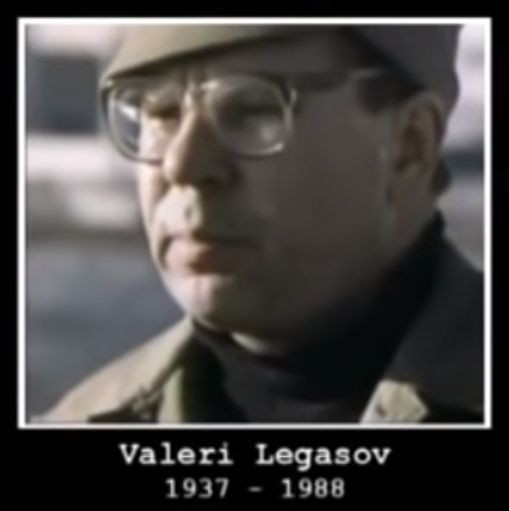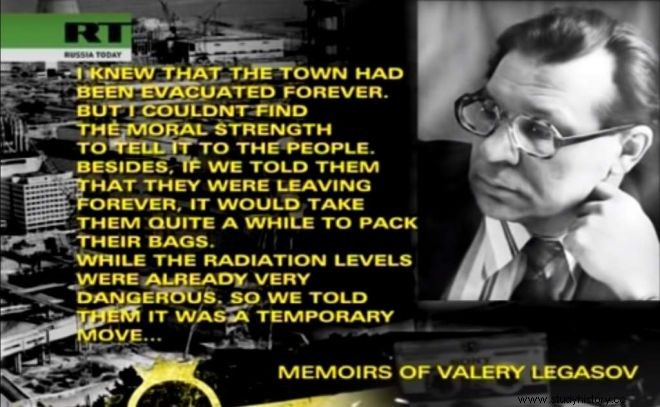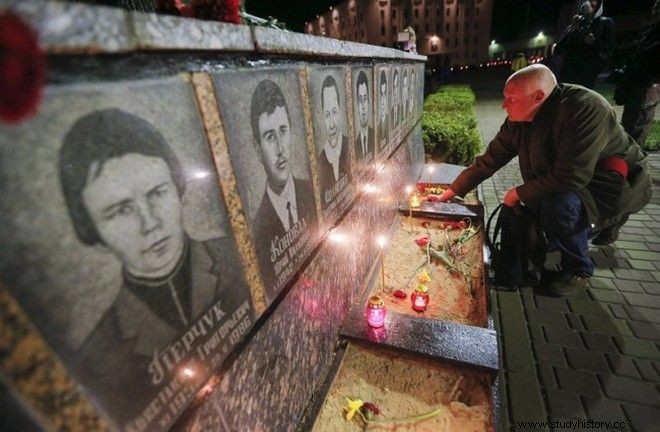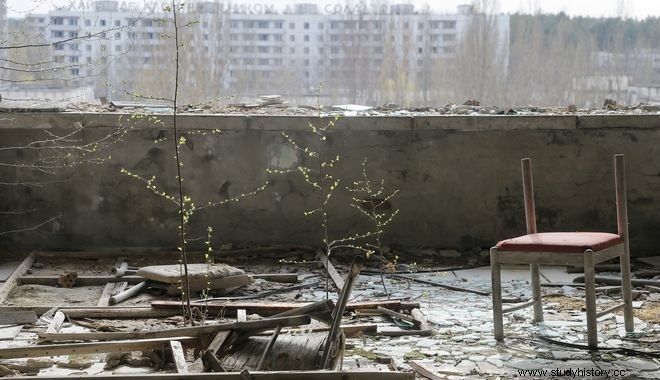In April 1988, the chief investigator of Chernobyl was found hanged in his home near Moscow. Two years had passed since the day of the explosion.
On the occasion of the HBO phenomenon mini-series, Chernobyl, we remember the scientist who was associated as much as anyone with the tragic nuclear accident that changed the history of the 20th century, being the man who largely saved humanity from an even greater disaster. Valery Legasov is the one who convinced the Soviet state to evacuate Pripyat, and he is the one who assumed the role of the head of the investigations into the causes of the accident.
His life
Валерий Алексеевич Легасов (in Russian) was a prominent Soviet scientist of inorganic chemistry and a member of the Russian Academy of Sciences. He worked as a secretary in the state communist youth organization, Komsomol, of the Moscow Institute of Chemical Technology.
Before the Chernobyl nuclear accident he had already highlighted the need for new safety methods to prevent major disasters.

"Flesh can only withstand a certain amount of radioactivity... and the mind can absorb certain horrors," he said, according to the BBC documentary.
Watch the shocking BBC documentary about the nuclear accident below:
Until the Chernobyl accident on April 26, 1986, he was the first deputy director of the Kurchatov Atomic Energy Institute. He then became a key member of the government commission set up to investigate the causes of the disaster and plan mitigation.
At his own insistence, areas were evacuated while he spoke openly about the possibility of greater destruction even though the government did not want much information to get out. Westerners spoke of "thousands dead" while the USSR tried to reassure.
At his own insistence, which is also recorded in the HBO series, government officials were convinced to take action to limit the extent of the nuclear disaster, and to take more measurements to understand its magnitude in the early hours. If Legasov had not been on the action committee, there might have been another explosion in Chernobyl, in the other three reactors, with dramatic consequences for all of Europe.

In his memoirs, he mentioned that they informed the residents that the evacuation of Pripyat would only be for a few days, so that they could be convinced more easily and not panic. The information was obviously not valid and the city remains a "ghost" to this day.
As his daughter Inga Legasova told the RT News Channel in 2008, it took government officials 36 hours to agree that the city of workers should be evacuated. According to his daughter, Valery himself had been exposed to radiation and was very weak in the days following the explosion.
However, the professor was not listened to when he asked to postpone the Labor New Year celebration for 1986.
In August 1986 Legasov presented the report of the Soviet delegation to the special session of the International Atomic Energy Agency (IAEA) in Vienna. His report was the most honest that had been presented about the aftermath of the tragedy.
"I stood in front of everyone in Vienna and blamed the young people in the control room. I didn't mention the part I played in their ignorance. Since then I've been trying to speak out to dispel the myth I created but what I write and the interviews I give don't are published. I ruined my career and my reputation. It's been two years since the accident and now I have nothing. I think it's fair."
The Ukrainian documentary "Chornobyl.3828" or "Chernobyl.3828" directed by Sergei Zabolotnyy:
On April 27, 1988, one day after the second anniversary of the Chernobyl nuclear accident and one day before the announcement of the results of the investigation into the causes of the disaster, the professor committed suicide by hanging. The HBO series also begins with the suicide scene.

Legasov was buried at the Novodevichy Cemetery in Moscow, while he had tried to commit suicide shortly after the Reactor 4 accident. Before the suicide, he had recorded his revelations, while he had been hospitalized due to his exposure to radiation, as his daughter has confirmed.
In the BBC documentary Chernobyl Nuclear Disaster which you can see above, Legasov claims that political pressure censored the mention of Soviet nuclear secrecy in his report to the IAEA, a secrecy that bars even plant operators from knowledge of past accidents as well as problems with the reactor's design.

"He felt a huge responsibility for what happened, mainly because the workers didn't know," his daughter had said in her interview with the RT News Channel.
"Chernobyl was the epitome of all the mistakes we had made in the management of our national economy for decades," the professor wrote in his memoirs. Vladimir Gubarev, a friend of his who staged a play about the disaster, told Pravda that his colleagues were ironic about Legasov's handling of the crisis, underestimating its scope.
On September 20, 1996, Russian President Boris Yeltsin posthumously awarded Legasov the honorary title of Hero of the Russian Federation for his "courage and heroism" in his investigation of the accident.
Legasov is played by Jared Harris in the Sky/HBO miniseries "Chernobyl" (2019).
Since the nuclear disaster of '86, it is estimated that 4,000 people died in total from cancer, while the area will not be habitable for 20,000 years in total.
It is noted that the audio documents left behind by Legasov are ignored. "There were no audio tapes," Jared Harris told The Cheat Sheet about how he prepared for his role.
"It's clear that they tried to erase his documents, along with him. They didn't want him to tell the truth about what happened," said the actor. "The production wanted to highlight the forgotten heroes of the time and events. To give them the honor and value they deserve," he concluded.
